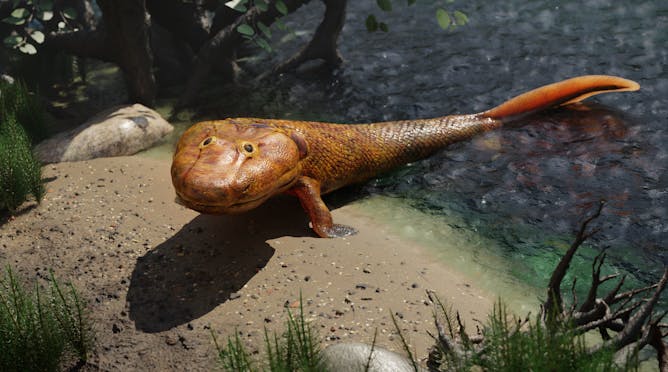|
What can the German philosopher Karl Marx teach us about global warming? Apparently quite a lot for someone who died nearly a century before scientific evidence of the problem started to accumulate. This is the argument of Marx in the Anthropocene, a recently translated book by Kohei Saito who teaches philosophy at the University of Tokyo in Japan, where it sold more than half a million copies.
While the money businesses can make from turning nature into saleable commodities is infinite, Earth’s ecosystems are not. “There may be no clearer illustration than the record profits of fossil fuel companies amid worsening climate conditions,” writes Timothée Parrique, an ecological economist at Lund University in Sweden who has followed Saito’s work. Marx’s writings on ecology have tended to be neglected, but combining his analysis of capitalism with newer scholarship on alternatives to economic growth offers a way to halt the escalating climate crisis, Parrique says.
Environment secretary Thérèse Coffey recently advised people to respond to the tomato shortages in supermarkets by turning to turnips instead. While many might grimace at the prospect, historian Serin Quinn at the University of Warwick claims that “neeps” were once highly prized in Britain for their variety of shapes, colours and flavours. And did you know fish have evolved the ability to walk at least five times? A biologist explains how it aided our own evolution.
|

|
Jack Marley
Environment + Energy Editor
|
|

John Bingham/Alamy Stock Photo
Timothée Parrique, Lund University
What does Karl Marx have to say about climate change? Quite a lot, according to a new book.
|

Hand-coloured etching of a king and his turnip (1819).
© The Trustees of the British Museum
Serin Quinn, University of Warwick
Thérèse Coffey’s recent suggestion that Brits eat turnips instead of tomatoes during food shortages was mocked – but the turnip hasn’t always been so unpopular, as a food historian explains.
|

3D rendering of the tiktaalik, an extinct walking fish.
Dotted Yeti/Shutterstock
Chris Organ, University of Reading
We can trace our human evolutionary lineage back to fish.
|
Politics + Society
|
-
Uta Staiger, UCL
The tactics that succeeded in this round of negotiations.
-
Dafydd Townley, University of Portsmouth
US president Joe Biden is under pressure to drop his vice president from the ticket in 2024, but a couple of things are holding him back.
-
Julian Hargreaves, University of Cambridge
Rooting the definition of ‘Islamist extremism’ in Islamic concepts, not British values, reduces the risk of the British state implying that Islam stands apart from British society.
-
Matthew Powell, University of Portsmouth
The high cost of warfare is not only human – military expenditure on both sides is enormous and will strain defence budgets.
-
Jonathan Este, The Conversation
A selection of our coverage of the conflict from the past week.
|
|
Arts + Culture
|
-
Adam de Paor-Evans, University of Plymouth
With their back catalogue finally being made available on streaming services, a new generation of rap lovers will get to enjoy their groundbreaking work.
-
Diana Holmes, University of Leeds
A social chronicler and prolific journalist as well as a fiction writer, Colette provided a highly original woman’s perspective on life in stultifying patriarchal times.
|
|
Business + Economy
|
-
Lucy Newton, University of Reading; Victoria Barnes, Brunel University London
Women have had to forge their own identity at work but still face issues based on their appearance.
-
Robert Crammond, University of the West of Scotland
The higher education sector in particular holds great economic potential.
|
|
|
|
Health
|
-
Lowri Dowthwaite-Walsh, University of Central Lancashire
‘Lucky girl syndrome’ focuses on using positive affirmations to achieve material benefit.
-
Claire Wicks, University of Essex; Susan McPherson, University of Essex
City living and country living both have their benefits and downsides when it comes to mental health.
|
|
Science + Technology
|
-
Glenn Williams, Nottingham Trent University
By getting us to focus on what matters to our lives, affirmations can act as a counterbalance to spiralling negative thoughts.
-
Jenna Kiddie, University of Cumbria
Your cat may not be as excited about a new arrival as you are. Gradual and controlled introductions will help your cat take to an unfamiliar animal.
|
|
Podcasts
|
-
Daniel Merino, The Conversation; Nehal El-Hadi, The Conversation
New technologies are often surrounded by hopeful messages that they will alleviate poverty and bring about positive social change. History shows these assumptions are often misplaced.
|
|
|
|
| |
|
|
|
|
| |
| |
| |
| |
| |
|
|